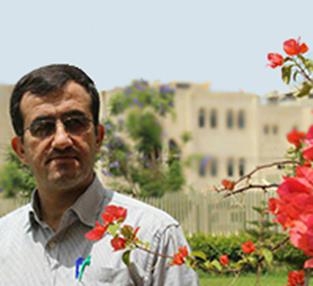Baharieh (on spring)
Selling the Old Is Over
Hamid Ghazvini
Translated by Ruhollah Golmoradi
2019-4-6

- Nowruz is one of the most important connecting rings and one of the most creating identity events for all Iranians, which has a deep link with memory.
One dare say that in civilization area of Iran, there is no one whom Nowruz is not reminded of him sweet memories; from housecleaning and new clothes, nourishment and Eid, visiting up to old rituals.
In childhood, after Eid holiday, for essay credit in school, we should write a few lines about the topic "How did you spend your Nowruz?" And this was a kind of memory-writing.
Interestingly, Nowruz has a distinguished place in memories of political prisoners, holy defense warriors, freed warriors, scientific elites and prominent political and social figures; because Nowruz affects everything. Ms. Tahereh Sajjadi, a Muslim militant during Pahlavi regime who had spent several years in prison, says, "During Eid days, the Joint Committee[1] would be quieter, we heard less yell due to torture, as most interrogators went on vacation. Those who were present also harassed less. Our Eid in the joint committee was that we were allowed to have a meeting. Eid's atmosphere was different in each of Evin, Qasr, and Joint Committee prisons. For example, the Joint Committee had a closed space, but in Evin, It was possible to see a branch of a tree or a bird that promised spring and refreshing. By bread and mouth water, we made small planes and pots. I remember, I created a blossom branch, which revived sense of freshness and spring in my existence. Usually, when they brought children to meeting, I would give them as Eidi the same small planes and like those and drawings that I made in Evin."
2) In the past year, with all its political, economic and cultural ups and downs, promising events took place in field of oral history. Holding workshops and various specialized meetings, initiating and continuing oral history projects and publishing new works, all reflect prosperity of this field and presence of audience and many words to say.
One of the reasons for boom of works related to memory-writing and oral history in recent decades seems to be to increase attention to human dignity in different societies. If oral history leads to democratization of historiography, it must be accepted that this will be realized when it values human regardless of its social status and takes serious its word; oral history, unassuming and in spite of many obstacles, have taken effective steps in this way. Steps that accompanied by participation and welcoming of the citizenry and is an important investment for both sides.
I regard this situation on the brink of spring as a good omen, and I wish everyone a year full of boom and avoiding repetition.
Turn of flea market sellers passed
We are new sellers and this is our market[2]
[1] Anti-sabotage Joint Committee, or Komiteh Moshtarak, was operated by SAVAK under the government of the Shah of Iran against political opponents.
[2] Ghazal 424 in Divan-e Shams.
Number of Visits: 5673








The latest
- 100 Questions/15
- Comparison of Official (Institutional) Oral History with Unofficial (Popular/Personal) Oral History
- The Three Hundred and Seventy-Third Night of Remembrance – Part One
- Third Regiment: Memoirs of an Iraqi Prisoner of War Doctor – 15
- A Critical Look at Pioneers of the Valley of Light
- The Artillery of the Islamic Revolutionary Guard Corps
- Translation in Oral History and Its Potential Pitfalls
- 100 Questions/14
Most visited
- Analysis and classification of oral literature of resistance using emerging technologies
- The Artillery of the Islamic Revolutionary Guard Corps
- Translation in Oral History and Its Potential Pitfalls
- 100 Questions/13
- 100 Questions/14
- Third Regiment: Memoirs of an Iraqi Prisoner of War Doctor – 14
- A Critical Look at Pioneers of the Valley of Light
- Third Regiment: Memoirs of an Iraqi Prisoner of War Doctor – 15
100 Questions/8
We asked several researchers and activists in the field of oral history to express their views on oral history questions. The names of each participant are listed at the beginning of their answers, and the text of all answers will be published on this portal by the end of the week. The goal of this project is to open new doors to an issue and promote scientific discussions in the field of oral history.The Role of Objects in Oral Narrative
Philosophers refer to anything that exists—or possesses the potential to exist—as an object. This concept may manifest in material forms, abstract notions, and even human emotions and lived experiences. In other words, an object encompasses a vast spectrum of beings and phenomena, each endowed with particular attributes and characteristics, and apprehensible in diverse modalities.100 Questions/6
We asked several researchers and activists in the field of oral history to express their views on oral history questions. The names of each participant are listed at the beginning of their answers, and the text of all answers will be published on this portal by the end of the week. The goal of this project is to open new doors to an issue and promote scientific discussions in the field of oral history.The Importance of Pre-Publication Critique of Oral History Works
According to the Oral History website, a meeting for critique and review of the book “Oral History: Essence and Method” was held on Monday morning, November 10, 2025, with the attendance of the book’s author, Hamid Qazvini, and the critics Mohammad Qasemipour and Yahya Niazi, at the Ghasr-e Shirin Hall of the National Museum of the Islamic Revolution and Sacred Defense.

